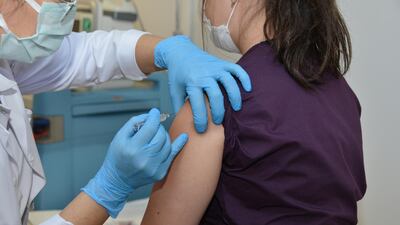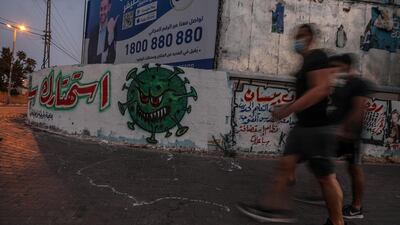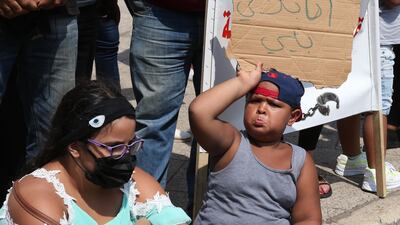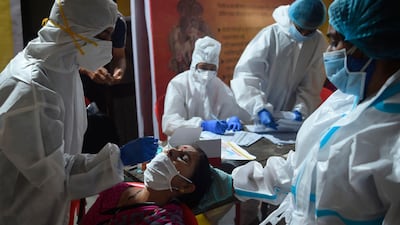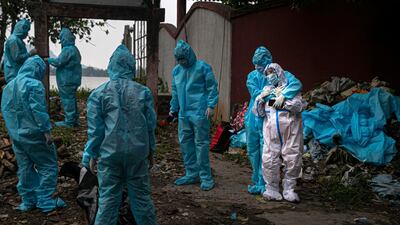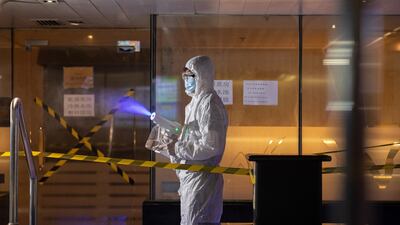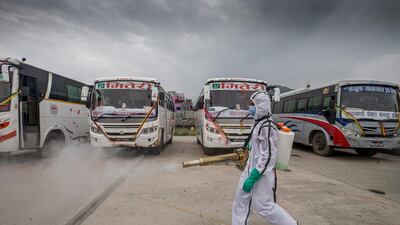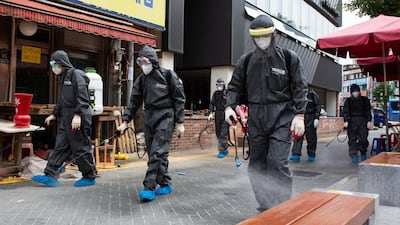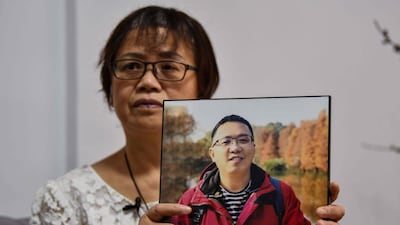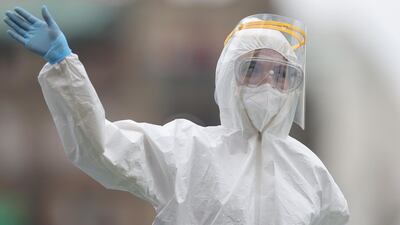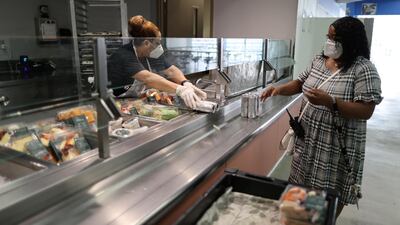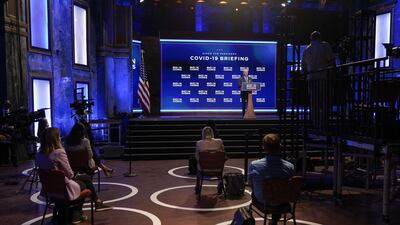For New Yorkers, the month of September is usually brings police checkpoints and gridlocked traffic as world leaders and their vast entourages descend on Manhattan for the United Nations General Assembly.
This year, the Covid-19 pandemic has kept presidents, princes and prime ministers away from the annual diplomatic gathering, sending pre-recorded videos and holding meetings online instead. Midtown East coffee shops are empty; the First Avenue thoroughfare is eerily quiet.
For many, this is a lost opportunity. The world is ravaged by a deadly virus, trade rows between the US and China are turning nasty, fighting or instability blight every region. At this crucial moment, statesmen are missing a chance to talk face-to-face with friends and foes alike.
Volkan Bozkir, a Turkish diplomat who became the UN General Assembly’s new president on Tuesday, lamented the loss of “person-to-person” chats with coffee mugs in quiet corridors where diplomats can put aside their talking points and “find compromises”.
“Nothing can replace this kind of communication,” Mr Bozkir said on Wednesday.

One world leader is bucking the trend. US President Donald Trump, a Republican who has repeatedly downplayed the virus and was loath to don a face mask, is expected to travel to Manhattan and speak in person at the UN’s marble dais.
This may not reflect Mr Trump’s support for multilateral bodies, which the president often derides as costly talk shops, but rather an effort to raise his profile among American voters while trailing in the polls before a November 3 presidential election.
The morning of September 22 will also feature video messages from Mr Trump’s counterparts from Russia, China, France, Iran and Turkey – Vladimir Putin, Xi Jinping, Emmanuel Macron, Hassan Rouhani and Recep Tayyip Erdogan – among many others leaders.
Mr Trump and Mr Xi, who lead two of the world’s superpowers, may even trade barbs in the global spotlight. The US accuses China of being too secretive when the novel coronavirus emerged in the Chinese city of Wuhan last year.
Beijing, which is fighting an increasingly bitter trade war with Washington, is widely viewed as making power plays at the UN and other multilateral bodies while Mr Trump’s America pulls back from its traditional leadership role.
Jonathan Cristol, a world affairs analyst at New York’s Adelphi University, described frustration at the UN over US efforts to scuttle the Iran nuclear deal, its decision to exit the World Health Organisation and for spending months rowing over the wording of a Security Council resolution on Covid-19.
"I worry that US-China tensions will return us to the paralysis we saw during the Cold War, with both sides reflexively opposing anything put forward by the other – the timing could not be worse for such counterproductive behaviour," Mr Cristol told The National.
“If China ends up making considerable diplomatic gains within the UN system, it will be because the US has decided to forfeit and play an entirely different game. It’s a risky approach that could leave Washington isolated and alone.”

Behind the scenes, diplomats and journalists will discuss whether Mr Trump will secure re-election in November and continue his go-it-alone foreign policy or if his Democratic rival Joe Biden will win and return the US to a more familiar course.
For UN officials, the week-long general debate is a chance to spotlight such global problems as poverty and corruption, scrapping nuclear weapons, boosting biodiversity and women’s rights and working together to beat Covid-19.
But world leaders often get sucked into political rows, meaning this year's conversation will likely be dominated by the 2015 Iran nuclear deal, US-China tensions and conflicts in Syria, Ukraine, Yemen and Libya that have dragged out for years.
UN Secretary General Antonio Guterres on Thursday urged countries to focus on the “number one global security threat” – the spread of a pandemic that is nearing the “grimmest of milestones” of one million deaths and 30 million infections.
The former prime minister of Portugal called for co-operation towards a “people’s vaccine” that is “affordable and available to all”. He also urged military chiefs throughout the world to cease fighting for the rest of 2020 to stop the virus from spreading across battlefields.
He praised “steps towards peace” in Sudan, where civilian and military leaders replaced a dictatorship last year, and in Afghanistan, where Taliban militants are talking to the government. The UAE-Israel peace accord has halted Israel’s threatened annexation of Palestinian land, he added.
But Mr Guterres also spoke of a global drift towards populist nationalism that was pushing the world backwards 75 years to “our own 1945 moment”. Leaders of the UN’s 193 members must “show solidarity and unity like never before to overcome today’s emergency,” he said.
_____________________


